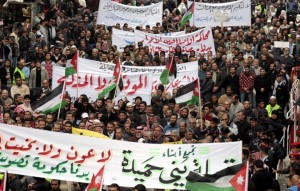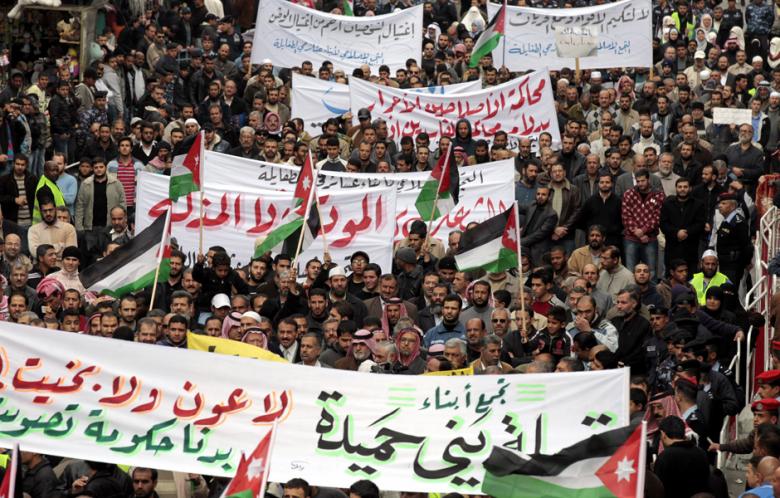
Samih Maaytah, official spokesperson of the Jordanian government and Minister of State for Media Affairs and Communications, has criticised the decision by some groups in Jordan to boycott upcoming parliamentary elections expected to be held in December, according to independent Jordanian news service Ad-Destour.
The statement came during a press conference where the minister spoke about both the internal political situation in Jordan and the impact the turmoil in Syria is having on its neighbour.
If groups are really serious about wanting change, Maaytah said, then they should participate in the elections, arguing that real change and reform can only come through participation and amending legislation from within constitutional institutions.
Among groups boycotting the elections is the Muslim Brotherhood (MB) of Jordan.
Maaytah suggested that Islamists are trying to pressure decision makers into changing the constitution in order to join the elections, Ad-Destour reported.
The MB’s political party, the Islamic Action Front, decided to boycott the parliamentary elections over a controversial election law which, according to the Jordan Times, prompted the creation of the Jordan Reform Front which includes a dozen parties boycotting elections.
The law gives every Jordanian voter two votes, one for a local candidate and another for political parties on a closed proportional representation list at the national level. The law which was endorsed last month gave opposition the chance to compete over 27 seats, at the national level in the lower house of parliament.
However opposition groups are demanding the right to contest at least 30 percent of seats in the House of Representative. All members of the upper house, the Senate, are appointed by the king.
The law had previously only provided 17 seats to be contested at the closed proportional representation level but following widespread public mobilisation against it and threats from the MB and other opposition groups to boycott, the King of Jordan ordered an extraordinary session of parliament to be convened in order to amend the law before endorsing it.
The king said the decision was in order to “help ensure wider public participation in the process,” according to AFP. This resulted in the opposition getting ten more seats but it was not enough for them to join the elections.
The new election law was supposed to be part of a reform process which would lead to an elected parliament followed by the creation of a parliamentary government, according to the Jordan Times.
Maaytah said the parliamentary government will be formed and that the formation of the government will be by parliament, not the king, but he added that interfering with the authorities of the king is off-limits and rejected by the people of Jordan, Ad-Destour reported.
The opposition is not optimistic about the government’s seriousness in its reform efforts. The Jordan Reform Front said in a statement that “the law in its current form… deviates from the real reform process.”




